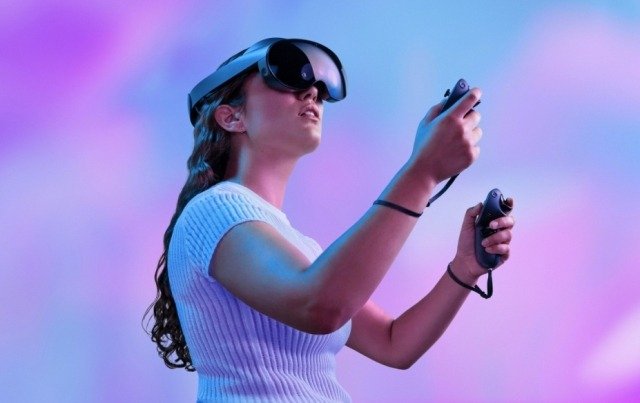Meta Platforms, formerly Facebook, will be sharing its Quest headset’s operating system with partner device makers.

Shipments of augmented reality and virtual reality (AR/VR) headsets fell 23.5 percent in 2023. There will be a recovery in 2024 as shipments are forecast to surge 44.2 percent to 9.7 million units, according to the recent IDC report.
“Apple’s launch of the Vision Pro grabbed a lot of headlines and has raised awareness for AR and VR and although it’s priced out of reach for most, it is helping raise the bar for competitors,” said Jitesh Ubrani, research manager, Mobility and Consumer Device Trackers at IDC.
Virtual Reality headsets are forecast to reach 24.7 million units by the end of 2028, representing a five-year compound annual growth rate (CAGR) of 29.2 percent. Augmented Reality headsets will be 10.9 million in 2028, representing an 87.1 percent CAGR over the same period.
The collaboration will empower partners like Asus and Lenovo to develop customized headsets tailored for specific activities, Meta revealed.
Meta also plans to produce a limited edition version of the Quest headset, drawing inspiration from Microsoft’s popular Xbox gaming console.
Mark Zuckerberg, CEO of Meta, appears to be driving this strategic project, aiming to establish Meta as a dominant force in the computational platform that underpins virtual reality (VR) and mixed reality (MR) devices. This aspiration parallels Google’s influential role in the smartphone market through its open-source Android operating system, Reuters news report said.
Notably, Meta’s VR business stands to benefit from this strategy, as Meta Horizon OS is built upon Android technology. Mark Zuckerberg showcased examples of specialized headsets that partners might develop in a video posted on his Instagram account, illustrating various use cases such as exercise, entertainment, and gaming.
ASUS’ Republic of Gamers is developing a gaming headset, while Lenovo focuses on an MR device geared towards productivity, learning, and entertainment, both utilizing the Horizon OS, according to Meta’s blog post.
While VR and MR headsets have primarily attracted interest from gamers and select enterprises for training and conferencing purposes, Meta faces increasing competition in this space. Apple entered the market earlier this year with its Vision Pro headset, priced at $3,499, and reports suggest that Google is also developing an Android platform for VR and MR devices.
In March, Meta’s Chief Technology Officer Andrew Bosworth accused Google of proposing restrictive terms to partners for its VR and MR platform, potentially causing fragmentation within the ecosystem. Mark Zuckerberg referenced this dispute in his video, expressing openness to incorporating Google Play apps on Meta Horizon OS devices.
Despite Meta’s openness to collaboration, Google has yet to respond to requests for comment on the matter. Meta emphasized that Meta Horizon OS includes the Horizon Store, formerly known as the Quest Store, for downloading apps and experiences, with a mobile companion app renamed as the Meta Horizon app.
Baburajan Kizhakedath
